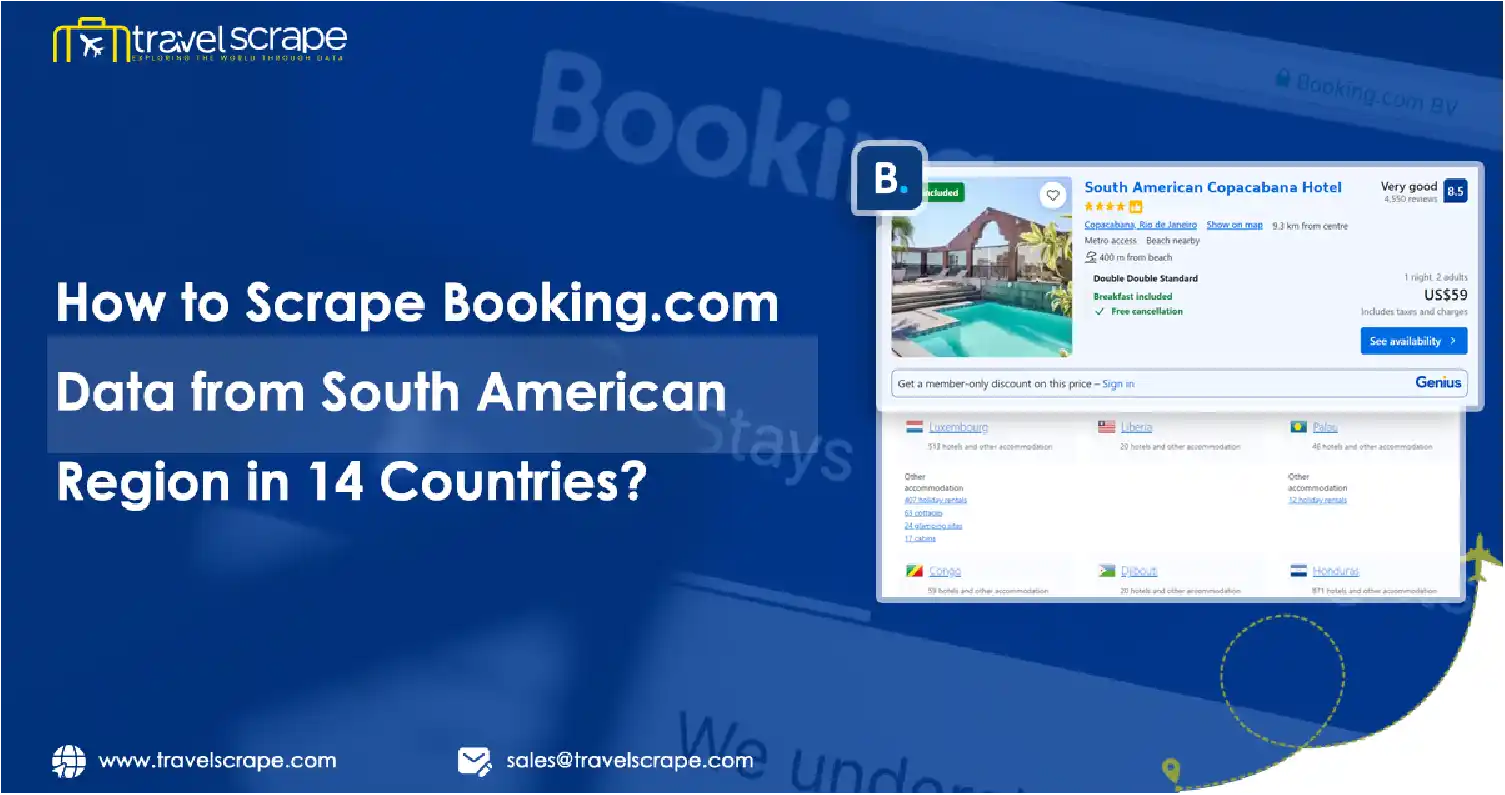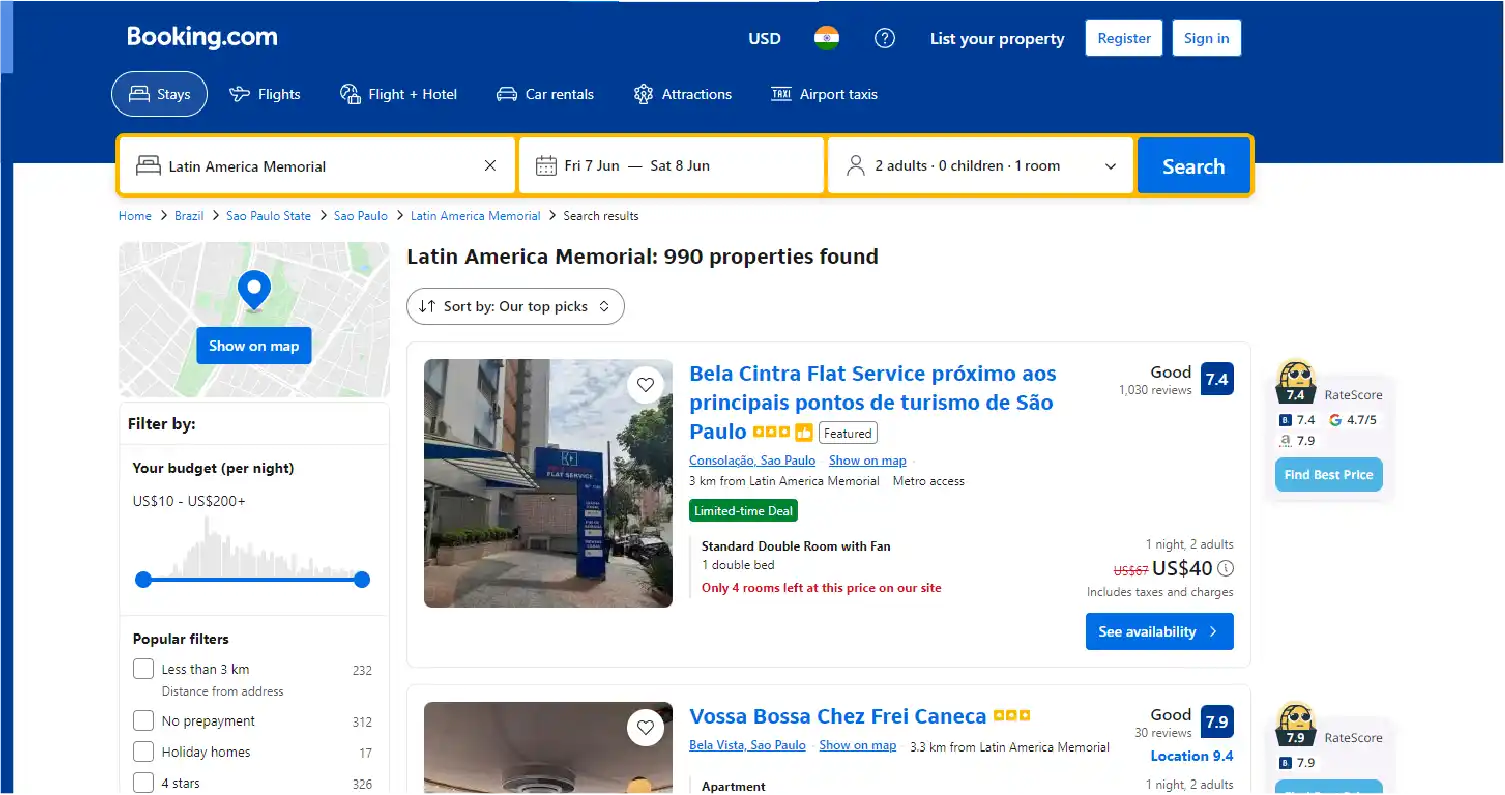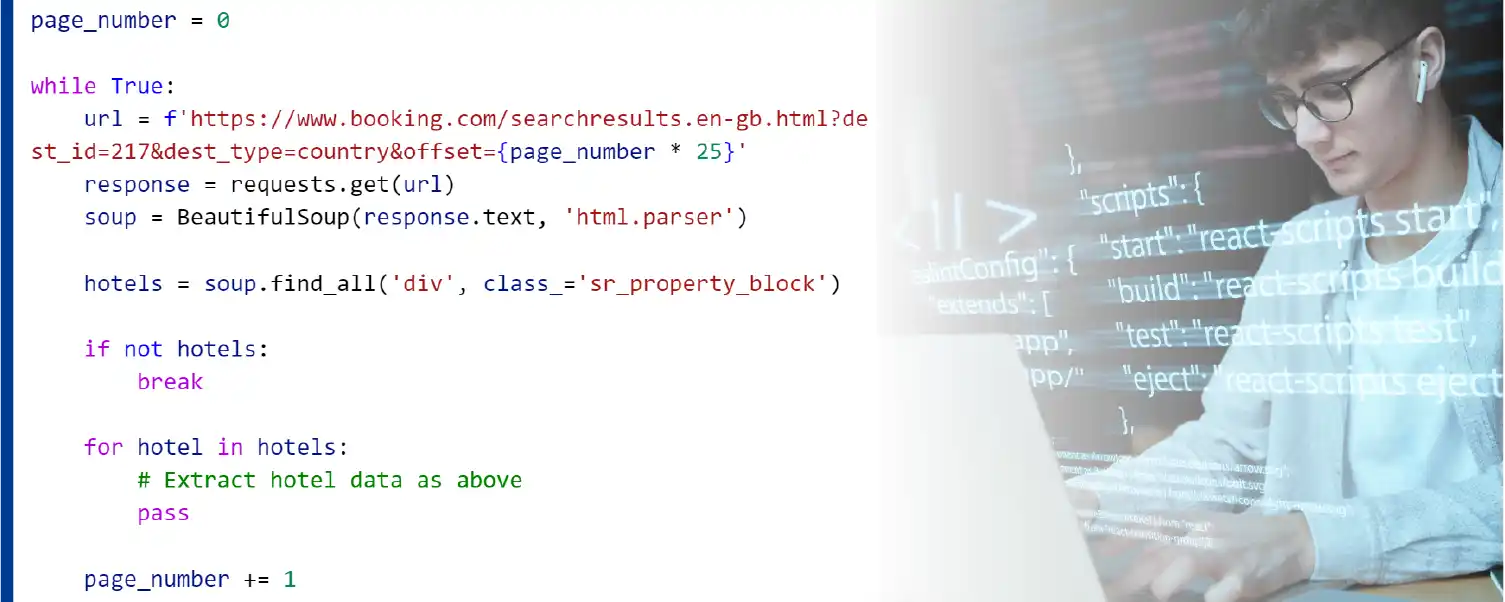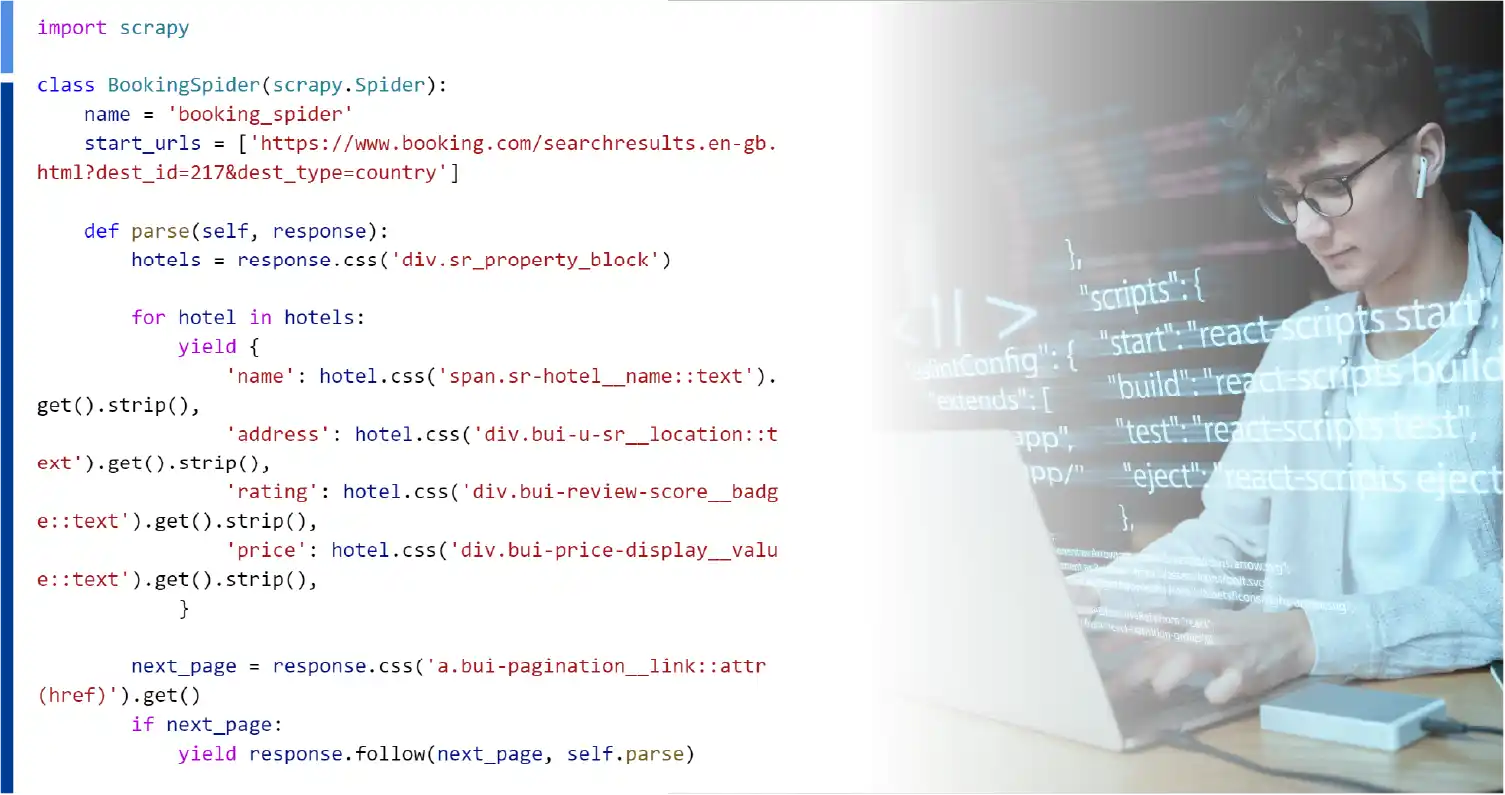How to Scrape Booking.com Data from South American Region in 14 Countries?

Introduction
In the travel industry, having access to comprehensive data is crucial for businesses and researchers. Booking.com, one of the largest travel e-commerce companies, offers a wealth of information on hotels, reviews, pricing, and availability. Scraping this data can provide valuable insights for market analysis, competitive intelligence, and strategic planning. This guide will detail how to scrape booking.com data from South American region in 14 countries using Python, focusing on techniques and best practices.
Understanding Web Scraping for Travel Data
What is Web Scraping?
Web scraping is the automated process of extracting data from websites. It involves using software tools or programming scripts to navigate web pages, retrieve specific information, and store it in a structured format for further analysis or use.
The process typically begins with sending HTTP requests to the target website's server, simulating the actions of a web browser. Once the server responds, the retrieved HTML or XML content is parsed to identify and extract the desired data elements using techniques like regular expressions, DOM traversal, or CSS selectors.
This method is used in various fields and industries, including market research, competitive analysis, lead generation, price monitoring, and content aggregation. Scrape Booking.com Data to help businesses gather large volumes of data from multiple sources efficiently and cost-effectively, providing valuable insights and driving informed decision-making.
However, it's important to note that while the process itself is not illegal, its ethical implications depend on factors such as the website's terms of service, copyright laws, and data privacy regulations. Therefore, practitioners should exercise caution and adhere to legal and ethical guidelines when engaging in this activities.
Why Scrape Booking.com Data from South American Region?

Web scraping travel data from booking.com, a leading online travel agency, offers numerous benefits for businesses and researchers, especially when focusing on the South American region.
Market Research:
Booking.com provides a vast repository of travel-related data, including hotel listings, reviews, prices, and availability. By scraping Booking.com data from the South American region, businesses can gain valuable insights into market trends, customer preferences, and demand patterns. Analyzing this data helps businesses understand popular destinations, preferred accommodation types, and peak travel seasons, enabling them to tailor their offerings and marketing strategies accordingly.
Competitive Analysis:
Scraping Booking.com data allows businesses to monitor their competitors' activities and performance in the South American travel market. By analyzing competitors' hotel listings, pricing strategies, and customer reviews, businesses can identify strengths, weaknesses, and opportunities for differentiation. This information empowers businesses to refine their own offerings, optimize pricing, and enhance customer satisfaction to stay competitive in the market.
Pricing and Revenue Management:
To collect travel data from Booking.com enables businesses to track pricing trends and optimize revenue management strategies. By scraping hotel prices and availability data, businesses can identify pricing fluctuations, seasonal trends, and competitive pricing strategies. This information helps businesses set competitive prices, adjust pricing strategies in real-time, and maximize revenue potential.
Enhancing Customer Experience:
Scraping Booking.com data allows businesses to access valuable customer feedback and reviews, helping them understand travelers' experiences and preferences. By analyzing review data, businesses can identify areas for improvement, address customer concerns, and enhance the overall customer experience. This, in turn, leads to higher customer satisfaction, positive reviews, and repeat bookings.
Leveraging Travel APIs:
In addition to scraping data directly from Booking.com's website, businesses can also access travel data through scrape booking.com data from travel APIs. These APIs provide structured access to a wide range of travel-related information, including hotel listings, prices, availability, and reviews. Integrating with Booking.com's APIs allows businesses to access real-time data, automate data retrieval processes, and build custom applications or services based on Booking.com's data.
When scrape booking.com data from travel APIs offers valuable insights for market research, competitive analysis, pricing and revenue management, enhancing customer experience, and leveraging travel APIs for seamless data integration and automation.
Setting Up Your Environment
To scrape Booking.com data, you'll need:
Python installed on your system
Libraries like requests, BeautifulSoup, Selenium, or Scrapy
Installing Necessary Libraries
pip install requests beautifulsoup4 selenium scrapyScraping Booking.com Data from South American Countries
We will focus on scraping hotel information and reviews from 14 South American countries: Argentina, Bolivia, Brazil, Chile, Colombia, Ecuador, Guyana, Paraguay, Peru, Suriname, Uruguay, and Venezuela.
Step 1: Sending Requests to Booking.com
First, we need to send HTTP requests to Booking.com for the desired locations.

Step 2: Extracting Hotel Data
Parse the HTML to extract hotel names, addresses, ratings, and prices.

Step 3: Navigating Multiple Pages
To scrape data from multiple pages, loop through the pagination links.

Step 4: Extracting Review Data
For each hotel, navigate to its individual page to extract review data.

Step 5: Saving Data
Store the extracted data in a structured format like CSV or JSON for further analysis.

Advanced Techniques
Using Selenium for Dynamic Content
For pages with dynamic content loaded via JavaScript, use Selenium to render the page.

Scrapy for Large-Scale Scraping
Scrapy is a powerful web scraping framework ideal for large-scale projects.

Using APIs
If available, use Booking.com's APIs to fetch data more efficiently.

Conclusion
Scraping Booking.com data from the South American region across 14 countries offers invaluable insights for market research, competitive analysis, and strategic decision-making in the travel industry. With Travel Scrape's comprehensive data scraping solutions, businesses can efficiently scrape mobile travel app data, analyze, and leverage this data to gain a competitive edge. Whether utilizing basic libraries like requests and BeautifulSoup, advanced tools like Selenium and Scrapy, or even tapping into Booking.com's travel APIs, Travel Scrape provides the expertise and tools necessary for travel aggregators success. This guide is a solid foundation for anyone seeking to harness the power of web scraping for travel data. Ready to unlock the potential of Booking.com data? Contact Travel Scrape today to take your travel analysis to new heights!